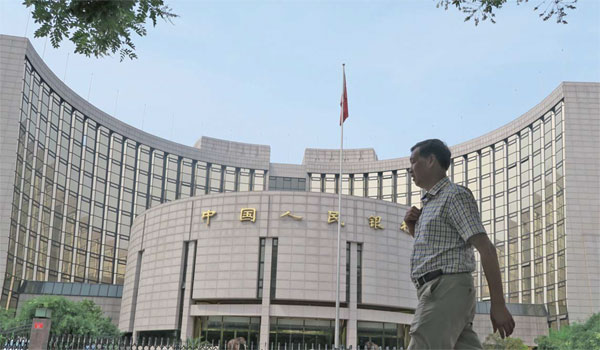Foreign bears don't affect China - yet
Updated: 2015-09-05 07:46
By Cecily Liu(China Daily Europe)
|
|||||||||||
|
People's Bank of China, the country's central bank. The degree of protection on China's financial markets and real economy will inevitably decline as the nation further liberalizes its financial markets, experts say. Provided to China Daily |
International investors cash in bearish Chinese bets with little impact, but that may change
Some international investors have cashed in their bearish bets on the Chinese financial market in recent weeks, but the country's stringent capital controls mean the impact of their activities on China's real economy is still minimal, experts say.
On the whole, both China's financial markets and real economy are relatively protected from external speculative transactions, they say, although the degree of protection will inevitably decline as China further liberalizes its financial markets.
In August, Emerging Sovereign Group's Nexus Fund made headlines by raking in $100 million in two days by anticipating a large depreciation of the renminbi - a 75 percent return for the fund.
This bet has attracted widespread attention because it is one of the few cases where foreign investors have been able to cash in on their bearish China bets. Despite China becoming an increasingly popular target for short bets, the country's strict foreign access to equity and bond markets means it is hard to bet on outright declines in those markets.
But the ESG hedge fund focused instead on betting against China's currency by purchasing put options that gave it the right to sell the currency at certain prices, hence it profited from the renminbi's depreciation.
"Despite the big gains made by the ESG hedge fund and potentially some other foreign investors, these transactions will have a very small impact on China's economy because the types of bets that can be placed are essentially very limited," says Miranda Carr, head of China thematic research at Espirito Santo Investment Bank.
More specifically, because of China's relatively closed capital account, the impact of foreign investors such as ESG on mainland currency markets is small, she says.
This protects China's currency market from big shocks that speculative currency trading could potentially have, as is demonstrated by classic examples such as the pound exiting the EU's Exchange Rate Mechanism in 1992 and the one-off revaluation of the Swiss franc against the euro this year.
In both situations, large volumes of trading by hedge funds contributed to the currency exchange shifts, either making or losing significant amounts of money for themselves in the process.
In the case of the pound exiting the ERM, George Soros, the most high-profile of the currency market speculators, made over 1 billion pounds ($1.53 billion) in profit by short selling the currency. The exit came about as the British government was unable to keep it above its agreed lower limit in the ERM. The event was dubbed Black Wednesday.
In January, the Swiss franc very quickly rose by some 30 percent against the euro after the central bank shocked global markets by abandoning its long-standing cap against the euro. Many hedge funds betting on the franc's depreciation lost massive amounts.
Today's Top News
EU sets new quotas for states to take asylum-seekers
France to begin Syria reconnaissance flights, mulls air strikes
Austria to end messures letting migrants in
Ex-VP nominee Palin: Immigrants in US should 'speak American'
China 2014 GDP growth revised down to 7.3%
Acquiring knowledge, building strength
Foreign bears don't affect China - yet
White paper on Tibet reaffirms living Buddha policy
Hot Topics
Lunar probe , China growth forecasts, Emission rules get tougher, China seen through 'colored lens', International board,
Editor's Picks

|

|

|

|

|

|







